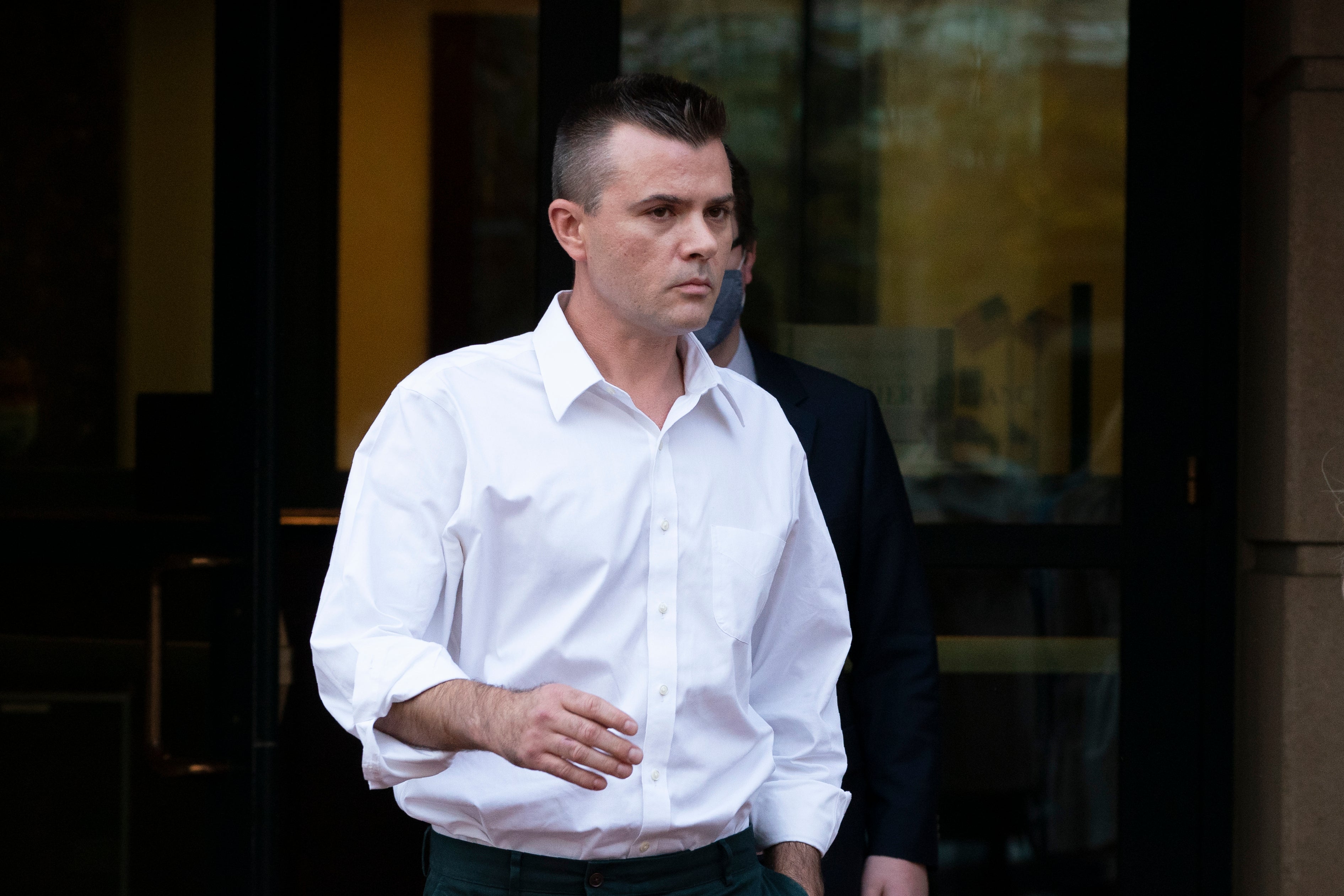Witness contradicts theory against Trump dossier analyst
The FBI agent who questioned an analyst charged with lying to the bureau about his role in the creation of a flawed dossier about former President Donald Trump has twice testified that he believes the analyst was truthful with him

Your support helps us to tell the story
From reproductive rights to climate change to Big Tech, The Independent is on the ground when the story is developing. Whether it's investigating the financials of Elon Musk's pro-Trump PAC or producing our latest documentary, 'The A Word', which shines a light on the American women fighting for reproductive rights, we know how important it is to parse out the facts from the messaging.
At such a critical moment in US history, we need reporters on the ground. Your donation allows us to keep sending journalists to speak to both sides of the story.
The Independent is trusted by Americans across the entire political spectrum. And unlike many other quality news outlets, we choose not to lock Americans out of our reporting and analysis with paywalls. We believe quality journalism should be available to everyone, paid for by those who can afford it.
Your support makes all the difference.The FBI agent who questioned a think tank analyst charged with lying to the bureau about his role in the creation of a flawed dossier about former President Donald Trump has twice testified that he believes the analyst was truthful with him, jurors heard Wednesday.
FBI analyst Brian Auten testified for a second straight day at U.S. District Court in Alexandria at the trial of Igor Danchenko. The Russian-born analyst, who now lives in Virginia, faces a five-count indictment alleging he made false statements to the FBI about his sources of information he provided about Trump to British spy Christopher Steele.
Prosecutors allege that Danchenko fabricated one of his sources and obscured another when he was interviewed by the FBI about his role in the “Steele dossier.” That dossier, commissioned by Democrats in 2016, raised allegations of connections between the Trump campaign and the Kremlin.
During Wednesday's cross-examination, though, Auten acknowledged that he has had positive things to say about Danchenko in past testimony to a Senate committee and to the Office of the Inspector General, both of which conducted their own investigations about the FBI probe into links between Trump and Russia.
The jury heard a partial transcript of testimony Auten gave to a Senate committee in October 2020, in which Auten said Danchenko “was being truthful about who his sub-sources were. I don’t think he was fabricating sub-sources.”
Auten told the jury he stands by the testimony he gave to the Senate.
The testimony was significant for the defense, which says special counsel John Durham has charged Danchenko with a crime when other government agencies found Danchenko to be credible. Special counsel Robert Mueller, who launched his own probe into alleged Russian interference in the 2016 election, never saw fit to charge Danchenko.
And the FBI, after three days of voluntary interviews Danchenko gave in January 2017, decided he was trustworthy enough to make him a paid “confidential human source” who would provide information to the bureau.
Durham was appointed by special counsel by then-Attorney General William Barr to investigate any misconduct in the FBI's investigation of the Trump campaign and its alleged ties to Russia. Danchenko is the third person to be prosecuted by Durham. It is the first of Durham’s cases that delves deeply into the origins of the dossier, which Trump derided as fake news and a political witch hunt.
Durham's other two cases resulted in an acquittal and a guilty plea with a sentence of probation.
In the Danchenko trial, prosecutors say he lied when he told the FBI he obtained some of his information in an anonymous phone call from a man he believed to be Sergei Millian, a former head of the Russian-American Chamber of Commerce.
Prosecutors say that Danchenko never spoke with Millian and that phone records show he never received an anonymous phone call at the time Danchenko claimed it occurred.
Prosecutors also say Danchenko lied when he told the FBI he never “talked” with a man named Charles Dolan about the allegations contained in the dossier.
Defense lawyers say that Danchenko did receive a call, perhaps over an internet app, from someone he genuinely believed to be Millian, and that he was truthful when he said he never “talked” with Dolan about the information in the dossier because their relevant exchanges were over email.